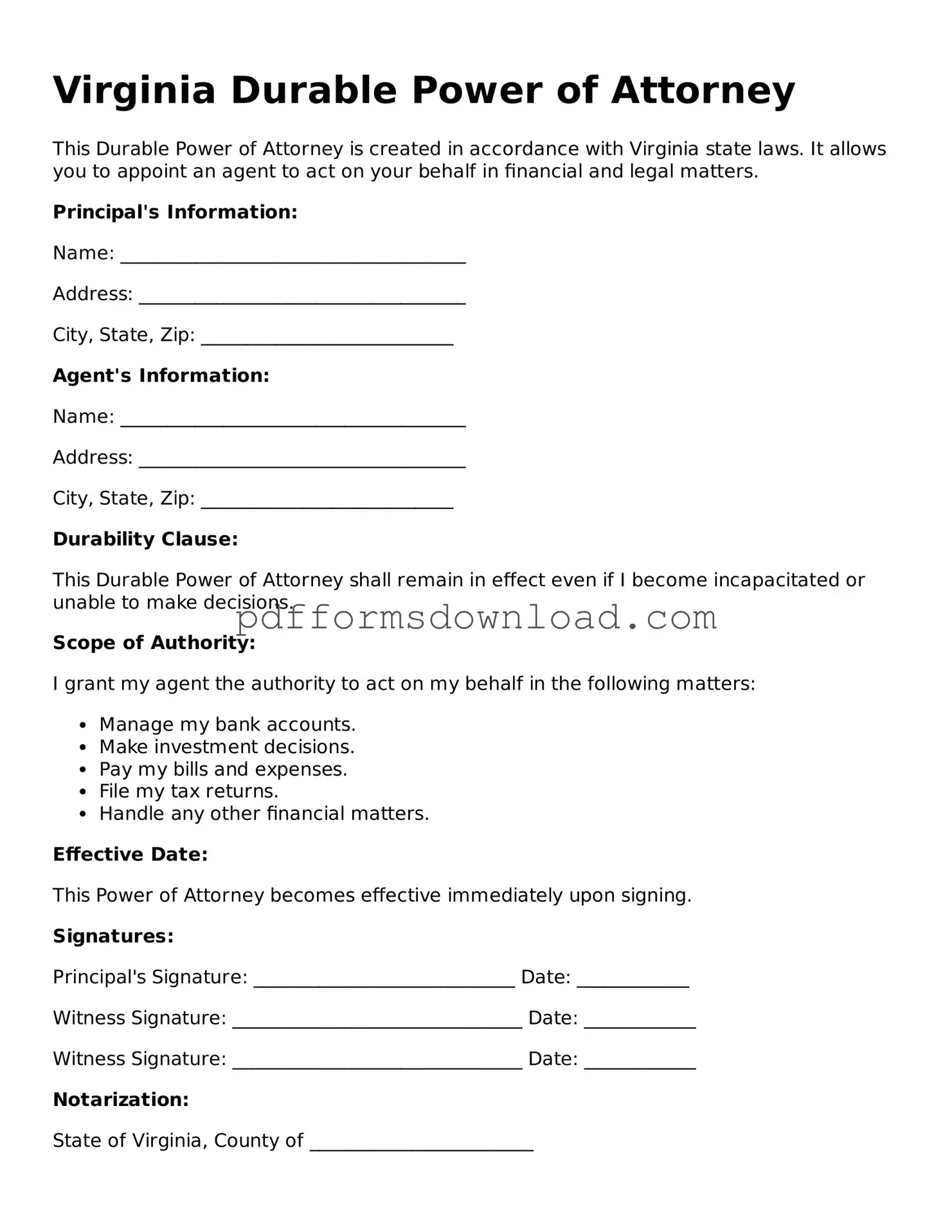Printable Virginia Durable Power of Attorney Form
A Virginia Durable Power of Attorney form is a legal document that allows an individual, known as the principal, to designate someone else, referred to as the agent, to make financial and legal decisions on their behalf. This form remains effective even if the principal becomes incapacitated, ensuring that their affairs are managed according to their wishes. To take control of your future, consider filling out the form by clicking the button below.
Make This Document Now

Printable Virginia Durable Power of Attorney Form
Make This Document Now

Make This Document Now
or
Free PDF File
Your form is almost ready
Complete your Durable Power of Attorney online — edit, save, and download easily.